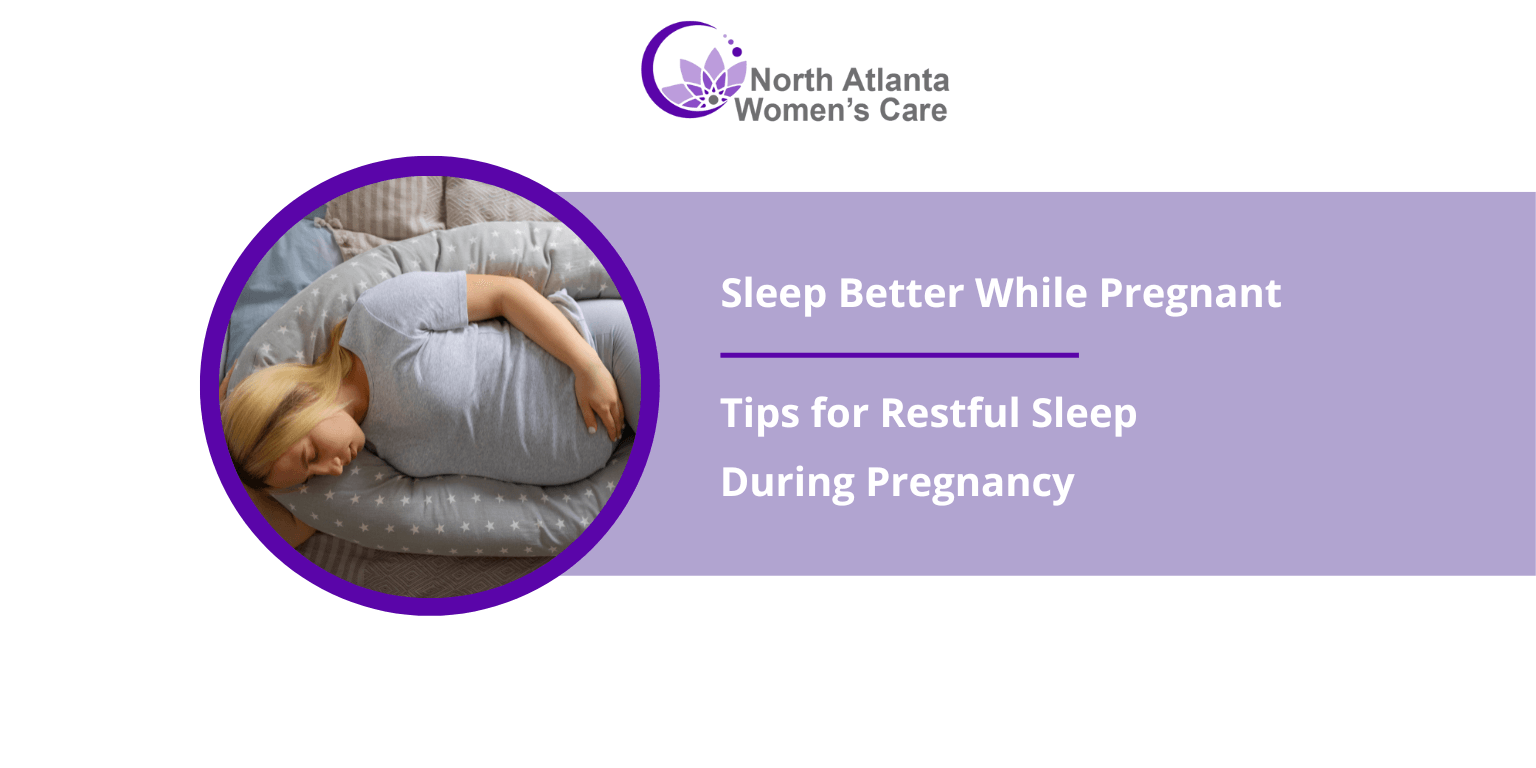Sleep Better While Pregnant: Tips for Restful Sleep During Pregnancy

Getting a good night's sleep is important, especially during pregnancy, but we understand it can be challenging for many moms-to-be. Research from the National Childbirth Trust (NCT) and the National Sleep Foundation has shown that getting restful sleep can have a significant impact on pregnant women and their developing babies. The good news is that you have more control over your sleep quality than you might think, even during pregnancy.
In this blog, we'll learn about common sleep challenges during pregnancy and provide you with tips to make the most of your nights. Our aim is to help you wake up feeling refreshed, full of energy, and ready to embrace each day of your journey into motherhood.
Common Sleep Challenges During Pregnancy
Pregnancy brings unique sleep challenges, including:
- Frequent Urination: The need to visit the bathroom throughout the night can disrupt your sleep pattern.
- Back Pain: As your baby grows, back pain becomes a common discomfort, making it challenging to find a comfortable sleeping position.
- Heartburn: Digestive issues and heartburn can make it uncomfortable to lie down and sleep peacefully.
- Restless Legs Syndrome: Many pregnant women experience restless legs, which causes discomfort and an irresistible urge to move their legs.
- Vivid Dreams and Nightmares: Hormonal changes can lead to more intense and vivid dreams, which may disturb your sleep.
10 Tips for Better Sleep During Pregnancy
To ensure you get the best rest possible during pregnancy, follow these tips:
-
Establish a Routine
Maintaining a consistent sleep schedule helps regulate your body's internal clock. Try to go to bed and wake up at the same time each day, even on weekends. This consistency can improve the quality of your sleep by aligning with your body's natural circadian rhythm.
-
Create a Comfortable Sleep Environment
Your sleep environment plays a vital role in the quality of your rest while pregnant. Make your bedroom a peaceful and inviting place to ensure you better sleep while pregnant. Ensure your mattress and pillows provide adequate support and comfort. Consider using blackout curtains and white noise machines if needed.
Stay Active and Hydrated
Regular physical activity can promote better sleep while pregnant. Just be mindful not to engage in strenuous exercise too close to bedtime. Staying hydrated is important, but try to limit your fluid intake in the evening to reduce nighttime trips to the bathroom.
-
Be Mindful of Your Diet
A well-balanced diet can positively impact your sleep quality. Avoid large, heavy meals close to bedtime, as they can lead to discomfort and indigestion. Opt for lighter snacks if you need them. Some pregnant women find warm milk or herbal teas soothing before sleep.
-
Limit Caffeine and Sugar
Reducing caffeine intake is essential, especially in the afternoon and evening. Caffeine can interfere with your ability to fall asleep. Additionally, avoid sugary snacks before bed, as they can lead to energy spikes and crashes.
-
Supportive Sleep Positions
Experiment with different sleep positions to find the most comfortable one. Many pregnant women find sleeping on their left side with a pillow between their legs and under their belly offers comfort and good blood circulation.
-
Nap Wisely
Short daytime naps can be refreshing, but long naps may disrupt your nighttime sleep. Keep daytime naps to a maximum of 30 minutes and aim to take them earlier in the day.
- h3>Deal with Discomfort:
Address specific pregnancy-related discomforts with practical solutions. For example, if back pain is an issue, consider using a maternity pillow to support your body. If heartburn is a problem, elevate your upper body with extra pillows to reduce acid reflux.
-
Limit Screen Time
The blue light emitted by electronic devices like smartphones and computers can interfere with your sleep-wake cycle. Try to avoid screens for at least an hour before bedtime to signal to your body that it's time to wind down.
-
Manage Stress
Pregnancy can bring about various emotions and concerns. Engage in relaxation techniques such as deep breathing, meditation, or prenatal yoga to manage stress and anxiety. Expressing your thoughts and feelings through a journal can also be cathartic.
When to Seek Professional Help for Better Sleep While Pregnant?
While some sleep disturbances are common during pregnancy, there are situations when it's advisable to consult your healthcare provider:
- Persistent Sleep Problems: If you're experiencing severe or persistent sleep disruptions, it's essential to consult a medical professional.
- Unusual Symptoms: If you notice unusual symptoms like sleep disturbances becoming increasingly severe, consult a healthcare expert to identify potential underlying issues.
- Breathing Difficulties: Any difficulty breathing or unusual respiratory symptoms while trying to sleep should not be ignored. Seek medical attention if you experience these issues.
- Emotional Distress: If sleep problems are causing significant emotional distress, consult with a healthcare provider to address the root causes of your emotional concerns and their effect on your sleep.
Enhance Your Sleep Quality During Pregnancy with North Atlanta Women's Care
Struggling to better sleep while pregnant? Our experienced team at North Atlanta Women's Care is here to assist. We understand the unique challenges of pregnancy and offer personalized guidance to improve your sleep quality. Contact us today for compassionate pregnancy care and support throughout your pregnancy journey.
Content Source: NCT, Sleep Foundation
Comments are closed

